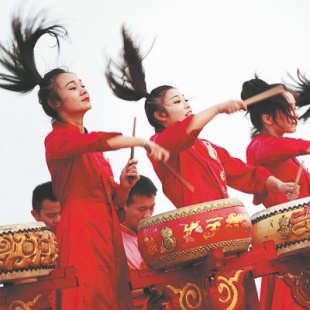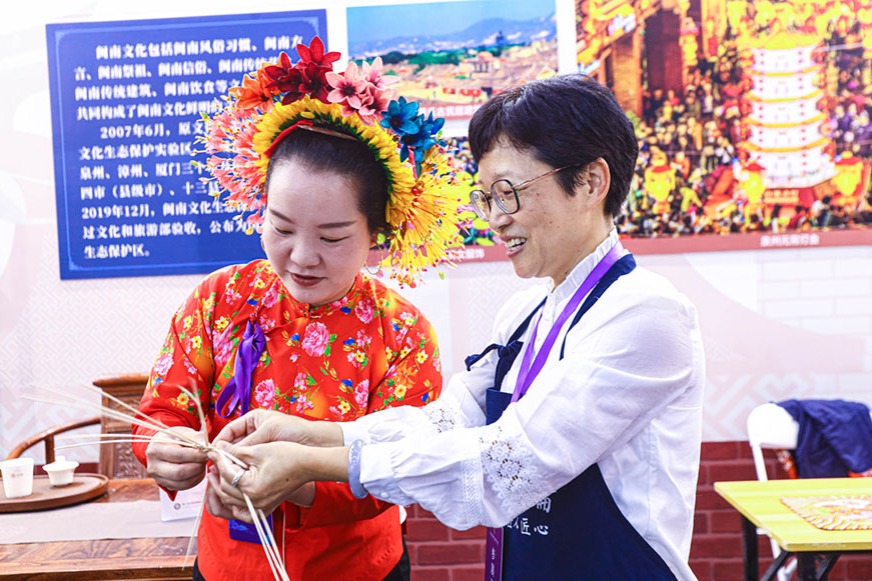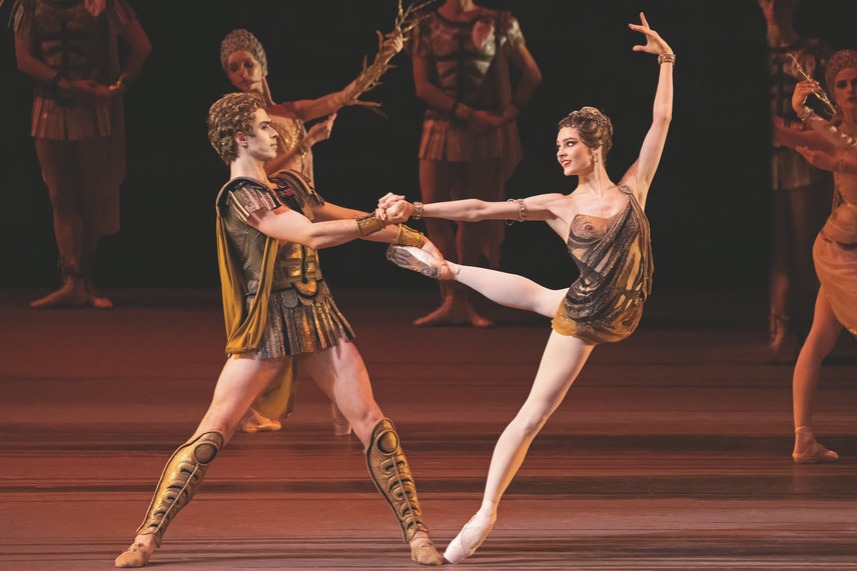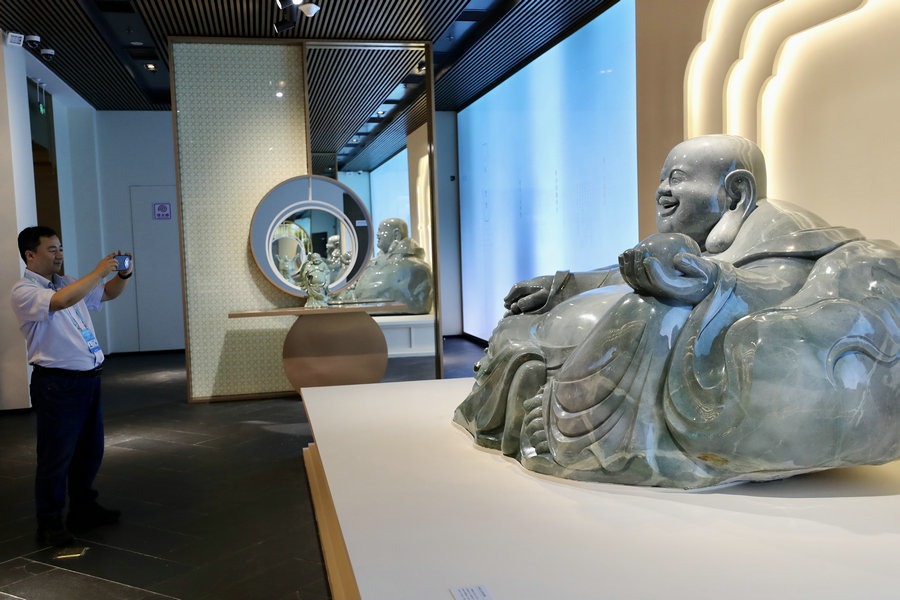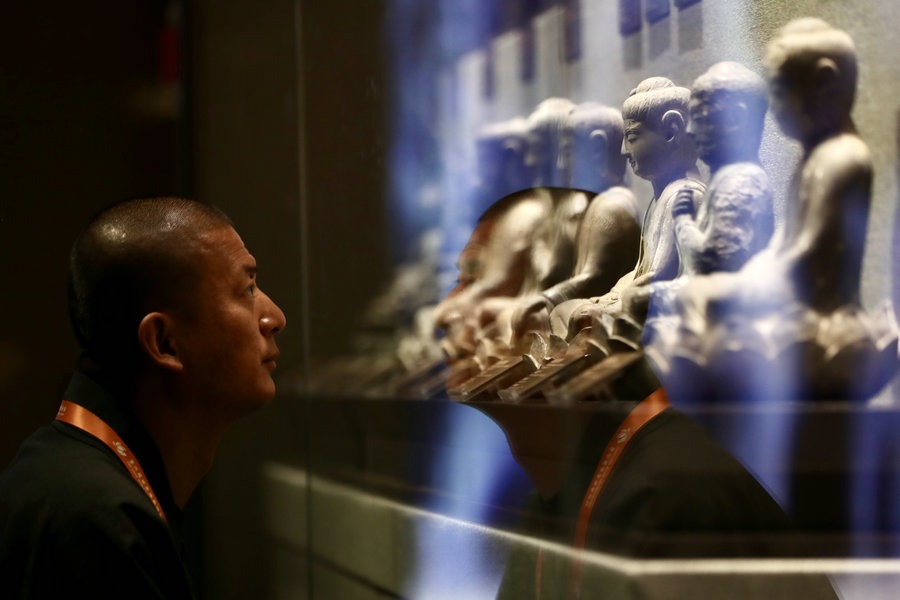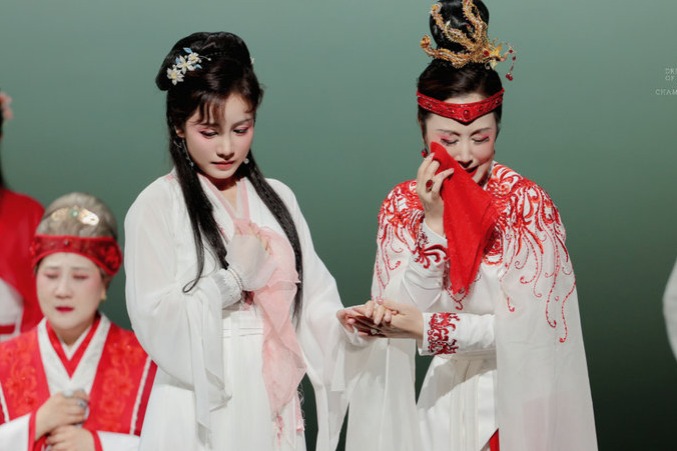Drums usher in a new beat

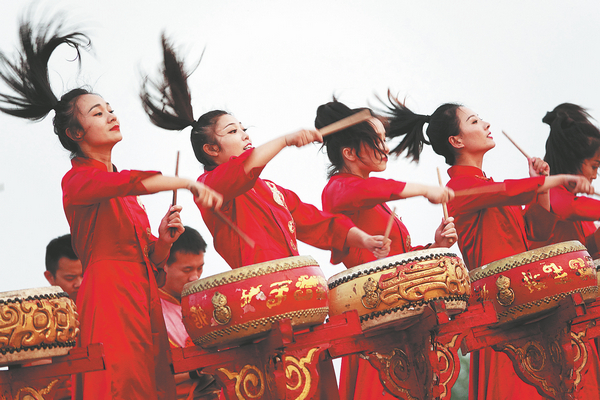
Troupe's mastery of ancient rhythm enchants audiences, report Wang Qian and Sun Ruisheng in Taiyuan.
With no narrative or stage set, musicians from Jiangzhou Drum Troupe use drumbeats and the sounds of Chinese cymbals to tell a heartwarming tale about a mouse who is seeking the strongest husband for his daughter.
Imitating the sneaky movement of mice with their bodies and facial language, the musicians have the audience in fits of laughter with their perfect combination of music and performance.
As night falls, the live show, Laoshu Quqin (Mice Wedding), at Xiyao village, Yuncheng, Shanxi province, has not only amazed villagers, but also netizens online. On short-video platform Douyin, the clip has garnered more than 1.3 million likes in total and brought the troupe and Jiangzhou drum music into the spotlight.
Dating back to before the Qin Dynasty (221-206 BC), drumming art originated in Shanxi's Xinjiang county, which was known as Jiangzhou.
Drumbeats were employed as communicative signals in battlefields, and nowadays they are an essential ingredient in most celebratory activities, even being inscribed onto the UNESCO Asia-Pacific Cultural Centre's List of Masterpieces of the Oral and Intangible Heritage of Humanity in 2002 and included in the National List of Intangible Cultural Heritage of China in 2006.
For Yang Dinghong, head of the Jiangzhou Drum Troupe, it is no surprise that the ancient drumming has the power to win audiences' hearts.
"Jiangzhou drum music can resonate with its audience, exploring the infinite rhythmic and tonal possibilities of the drum," Yang says, adding that social media provides a new platform for musicians to let more people appreciate its unique charm.
The charm, for Yang, is the thrilling moment when he first saw his father rehearsing Qinwang Dianbing (Prince Qin Takes His Roll Call) with other farmer musicians in 1987. "After that, I could not get the drumbeats out of my mind," he recalls.
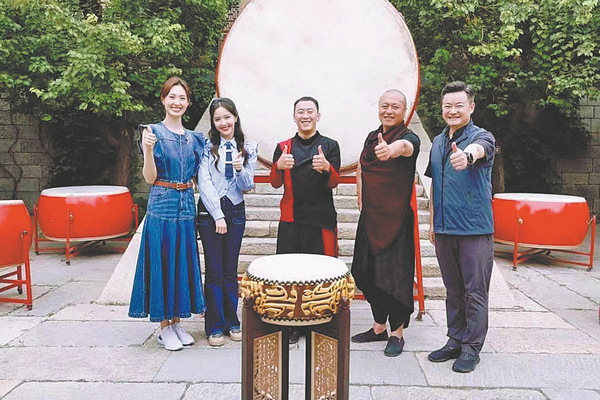
When the troupe, made of villagers, was established by Wang Qin'an in 1988, Yang quit junior middle school without hesitation and became one of its first batch of trainees. Although discovering his passion for drumming, Yang had a tough time making ends meet after his father passed away in 1989.
"In the early period of our troupe, there was no market for us. Wang had to pay from his pocket to run the troupe's operation. What kept us at it was the firm belief that our drum music would ultimately be seen," Yang says.
Despite taking the stage at the Great Hall of the People in Beijing in 1988 and performing at the 2012 China Central Television Spring Festival Gala, the troupe struggled to survive for years amid lack of performance opportunities and financial support.


